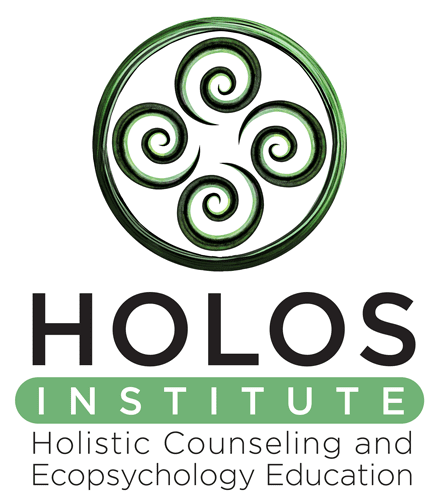Holos 2019 Ecopsychology Conference
Emergent Truth in Soulful Times:
How do we Face, Speak and Act in Truth in a World of Falsehood and Fear
April 6 – 7, 2019
Saturday 9:00 am – 5:30 pm/7:30 – 9:00 pm
Sunday 9:00 am to 5:00 pm
Earthrise Retreat Center (IONS), Petaluma , CA, USA
The Holos Institute Ecopsychology Conference brings together an extraordinary community of clinicians, healing arts professionals, and others who share a concern for the environment to forge a way forward in these challenging times. Together we create community, explore collaboration, refine ideas, and engender hope and resilience.
We look at the role of an evolving psychology to meet the challenges of a changing environmental and socio-political climate and explore the importance of aligning with an emergent truth to anchor our psyches. This year we reach out to the power of myth, story and soulful personal experience to help shape a path of psycho-spiritual healing in deeply troubled times. We also examine the traumatic effects of climate change on the psyche and seek solutions of resilience and sustainability.
Come join us in this wonderful gathering, renew your spirited approach to psychotherapy, connect and build community!
We will be offering an array of inspiring speakers, experiential workshops and presentations on applications of ecopsychology. We have a line-up of wonderful speakers, including Martin Shaw, Clare Dubois, Mutima Imani, Joe Ruzek, Duane Elgin, Jamie McHugh, Rachael Vaughan, and many others. This year we have extended the conference to a full weekend to include a special Saturday evening presentation and allow for 2 hour on-the-land afternoon workshops along with longer keynote presentations with audience Q&A.
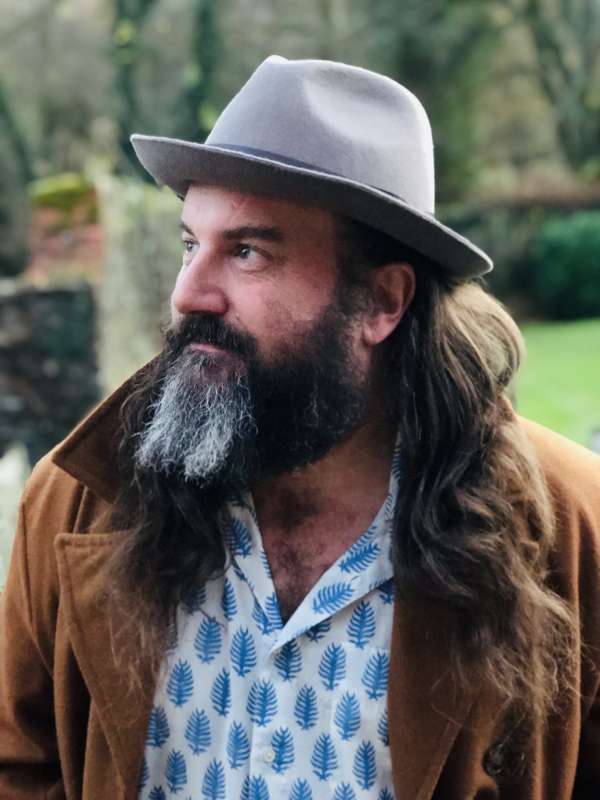
On Saturday evening, Dr. Martin Shaw, will conjure up a magical, mystical, story of love, hope and the natural world!
“An outrageous piece of magic.” David Abram, author of Becoming Animal
“A web of wild intelligence.”Rosie Boycott, The Independent
“A true master. Martin Shaw is one of the very greatest storytellers we have.”Robert Bly, author of Iron John
Registrations for the full conference and single days now available
SCROLL DOWN UNDER FEES AND REGISTRATION FOR CONFERENCE REGISTRATION
SATURDAY EVENING ONLY WITH MARTIN SHAW IS SOLD OUT
WORK/TRADE DISCOUNTS WILL NO LONGER BE AVAILABLE AS OF TUESDAY, APRIL 2 8:00 AM
Earthrise Retreat Center is about 45 minutes north of San Francisco, just south of Petaluma. Situated on 195 acres of oak studded rolling hills, the campus includes an old oak grove, a labyrinth, lovely gardens and hiking trails – all of which we will access during the post-lunch breakout workshops. This year we have extending the conference time along with the duration of the post-lunch breakout sessions. There will be an opportunity to browse books and publications by presenters and attendees and generally network amongst like-minded, eco-conscious folk.
~ We are committed to assisting, as best as possible, in forming carpools and ride-shares.
– We will coordinate your transportation from the Petaluma stop of the Sonoma Airport shuttle to the Earthrise Center as best as we can
~ We have reserved a limited number of lodging rooms at the center for both Friday and Saturday evening for those who are traveling. Please register early to secure a room.
~ We are committed to offering financial support as much as possible. Contact us to request work/trade discounts. The sooner you contact us and register, the greater the discount.
We are thrilled to expand our annual conference to two days of engaging presentations and workshops! The Saturday program will inspire and expand at a conceptual level, and the Sunday program offers concrete clinical approaches to such issues as eco-resilience, climate change anxiety and grief, as well as eco-therapy research. Note: schedule subject to change
SATURDAY April 6:
8:30 Registration and arrival (tea, coffee and breakfast snacks will be served)
There will also be a book room where presenters will be offering books and crafts for sale
9:00 Welcome
9:10 Invocation and Blessing
Melissa Elgin & Lorelle Ross of the Federated Indians of Graton Rancheria
9:30 Breakout Workshop Intros
9:40 Jan Edl Stein, MFT – Emergent Truth: A Call to be Present and Open Deeply
9:55 Clare Dubois – Embodying Nature, Listening into Leadership
Opening the body-mind to the consciousness of nature is like bowing before creation and saying ‘show me’. Show me who I am, who we are, how we could live if we recognized ourselves as elements intrinsically woven into our sacred, interconnected planetary ecosystem. This session is an opening to more. It is part experiential, part transmission, part invitation.
10:45 BREAK
11:00 Mutima Imani – The Ancestors Said to Say
The world we live in is an amazing place even with all the suffering in the lives of humans and in the natural world. What are the stories that you are telling yourself that are full of half truths. These half truths are feeding the falsehoods that are keeping us disconnected from our selves, others and nature. We can recover our innate ability to be resilient as we restore our connection with our Ancestors. Let us face the pain of all of the lies and reclaim our wild and divine selves. We are our Grandmothers prayers and our Grandfathers dreaming. It’s time for a new story to emerge, one that is free of the delusions of democracy. A story that empowers us to guide ourselves and others out of fear into love.
11:40 Garrett Barnwell – Thathe Vondo Forest: a Terrapsychology of Sacred Spaces with Traumatic Pasts
This presentation will focus on the emergent experiences of one-week ecopsychology guided walks in and around the sacred Thathe Vondo forest in Venda, South Africa. The Thathe Vondo Forest is indigenous Afromontane and is considered to be a living spirit by the indigenous people of the area. In the 1950s large parts of the forest were destroyed for pine plantations. Oral history described this as being a political act by the central government of the Apartheid Regime. The violence was experienced through land degradation, forced displacement and ecocide. This traumatic act is one part of the “terror psychology” of the area, but if you listen closely, resistant forces of life processes of the indigenous forest dominate. The presentation draws on ecopsychology, specifically earth dreaming and terrapsychology, and it will be delivered in the form of a narrative. In the description of social ecology of Thathe Vondo forest, both the life processes and narratives of trauma will be described. The speaker will portray how the forest is alive in the place, manifesting in different motifs. Non-local participants’ experiences of earth dreaming and other experiences of place will also be described to highlight impressions of the forest on those who experience it. In summary, the presentation describes an animated forest, a place, that is a counter-narrative to the dominant de-spirited notions of places that assist industries to commodify and objectify sacred spaces.
12:00 James Stark – Silent Spring: Living in Awe and Joy on Drifting Continents
What an amazing moment to be alive in this 13.7 billion unfoldment of the universe. We each have the opportunity to courageously ponder whether we will join the present mass extinction of so many forms of life. Or, will this crisis be a portal into a new era of human being living in harmony with life. This presentation will explore some of the questions we might consider as our global challenge deepens. Do we have a dream or vision for an ecological human culture-what is our new story? In the individual imaginary worlds in which we live, can we create a beautiful inner garden, an oasis for living in dark times? Do we have the personal skills that our ancestors had when they lived without the global systems that we are so dependent on and that will likely fail? How will our safety and human health be assured? If our electrical grid goes down, do we know how find food and water? How do we create resilient nature connected villages/communities where we live, whether urban or rural? How do we make the transition to becoming villagers – moving from me to we? As we each listen for how we might be used in this mysterious time, what personal gifts you want to bring forward and what old patterns are you ready to compost? What are you grateful for?
12:20 LUNCH BREAK
1:45 BREAK-OUT WORKSHOPS – experiential, on-the-land, small group programs. Choose one upon registering (to secure your place) or simply choose one at the start of the day
Mutima Imani – Healing Racial Wounds Workshop
Racism has harmed everyone. Where do you begin to decolonize your mind to heal the patterns of harm that causes the pain of separation and despair? This workshop will guide you through a liberation process to heal the past to be present to current social justice issues.
Constance Washburn – Gathering the Evolutionary Gifts of Gaia
We are Gaia, interconnected to all life in the present as well as our ancestors going back 3.8 billion years to the first multi celled creatures in the primordial oceans. Yet we can forget and feel isolated and powerless in the face of current events, climate change and our personal histories. This practice from the Work That Reconnects takes us on a journey to rediscover our interconnection through movement and guided imagery as well as time exploring the natural world. We will journey through time and gather the gifts from all our ancestors human and non human. We will also have some time outside to find our current connections to the gifts and wisdom of Gaia.
Renée G. Soule, PhD – Healing Shame by Cultivating Truth
Sometimes truth is welcomed. Other times it is hard to swallow, let alone honor or share. Ecological accountability is one of those difficult truths. Even a whiff of blame evokes shame. As the truth of our complicity in causing environmental harm is exposed, tallied, and made clear, we walk deeper and deeper into fields of shame. This is a delicate situation for “truth workers” because wholesome responses to shame are not humanity’s strong suit. Whether truth is experienced as a battering ram or a place of belonging depends upon our capacity to work insightfully and firmly with shame. In this workshop, we will explore the vital role shame plays in the maintenance, repair, and evolution of complex living systems. This participatory workshop will involve time in small groups, exploratory improvised theatre, and hopefully a few laughs. Along with belonging and empathy, humor is a time-honored way to mitigate the intensity of shame while still heeding its life-serving purposes.
David Talamo – Healing Trauma Through Nature Connection
The disorientation caused by disconnection from Nature experienced by most 21st century humans makes us all the more susceptible to trauma and PTSD. In this class we’ll explore this premise and work towards the following goals: Gain a working definition of trauma Improve skill at tracking own activation and settling cycles Identify when traumatic activation is present and have basic interventions to alleviate it, or at least not worsen it Explore how Nature and ecotherapy can be a resource for trauma resolution
LaUra Schmidt & Aimee Lewis-Reau – Self-Care & Resilience Building in a Chaotic Climate
The Good Grief Network offers multi-modal techniques to help facilitate the metabolization of heavy feelings which can put advocates and activists at risk of burnout. We provide tools and an encouraging community that helps prevent activism fatigue, despair, and inaction. These tools are necessary for anyone looking to sustain themselves for the long haul. By appealing to our brains with research and resources, we open the door for more heart-centered work. We provide a gateway to practice opening and trusting our hearts, to transcend fear and re-establish connections (with ourselves, others, and the natural world). This creates a foundation of resilience and strength to show up outwardly as activists and advocates.
Cyndera Quakenbush – Story Through Stone: Awakening the Animistic Imagination
This workshop instructs individuals on how to trust their own image-making and storytelling minds to engage with the environment in an animistic manner. Ancestors of every continent used to see the entities of nature around them as alive and possessing soul – even as divinities. In this workshop, participants will explore this capacity still present in modern people today. The workshop will begin with a discussion and warm-up activity with billion year-old stones that contain naturally-occurring imagery. Participants will get acquainted with their capacity to see shapes and figures on the surface of the stone.
3:45 Regather, comments
4:00 Panel with Jan Edl Stein, MFT, Mary Good, MFT, Anna O’Malley, MD, Mutima Imani, MA, and Craig Chalquist, PhD
Please bring your questions/concerns and commentary as our panel of presenters meet your inquiry in a lively discussion that invites YOUR participation.
5:10 Martin Shaw introduction
5:30 DINNER BREAK
7:30 – ~9:00 pm Evening with Martin Shaw – Into The Marvelous: a Counsel of Resistance and Delight
With grief rapidly becoming the new sexy I want to challenge the moribund time line that is being so consistently dished out these days. Not as a denial of the facts, but that it contains such a lack of magical thinking, a lack of wit, a lack of covenant with the miraculous. It’s just not hip. I am a father, and if you think I’m quietly telling my kid that the whole affair is doomed then you have another thing coming. Sorrow can be efficacious, and absolutely needed, but handled correctly it also births a greater capacity for not just joy but delight. That’s part of cultural move I think we need. As the poet Jack Gilbert said, can we risk delight? When you risk delight there is a barely glimpsed possibility that you yourself, in the authenticity of your incompleteness may remember the story you are actually here to deliver. And that is a radical proposition. YOU are a radical proposition.
SUNDAY SCHEDULE:
8:30 Registration
9:00 Welcome, intentions of the day
Breakout Workshop Intros
9:15 Joe Ruzek – Climate Change, Traumatic Stress, Coping, and Community
Global warming is likely to affect the mental wellbeing of millions of persons in the 21stcentury, increasing risk for depression, anxiety, post-traumatic stress disorder, anger and violence, social disruption and displacement, and social conflict. This presentation will review the mental health consequences of climate change; consider the strengths and limitations of current approaches to counseling of disaster survivors, refugees, and other affected populations; speculate on ways to strengthen the coping of individuals and communities; and suggest some priorities for improving readiness and societal response to global warming.
10:10 Rachael Vaughan – How Can We Live In the Anthropocene?
This presentation discusses ecological grief and extinction terror—two phenomena currently showing up in therapy consulting rooms either overtly or indirectly through various forms of psychopathology. When Joanna Macy designed her grief work, there was still hope that we could save the world, but now the picture looks increasingly bleak. The paper asks, how can we live decently in the Anthropocene? How can we help our clients—as well as ourselves—live with the despair, anger and fear provoked by the current very real scenarios of climate emergency, without resorting to spiritual bypass, denial, false hope or nihilism? The paper draws on the work of Donna Hathaway, Kathleen Dean Moore, Deborah Bird Rose, Gary Snyder and Anna Loewenhaupt Tsing, to suggest some ethical, grounded and eco-psychologically sound ways of living here now.
10:40 Sarah Scheld – Trauma, Ethics, and Ecology: Reflections from Nonordinary State Therapy
Drawing on efforts to develop ethical guidelines for practitioners working with MDMA-assisted psychotherapy to treat PTSD, this presentation engages ethical considerations related to power and privilege in deep experiential psychotherapies involving nonordinary states of consciousness. This presentation will explore how by viewing therapeutic relationships as embedded within historical, cultural, and intergenerational ecologies of trauma, caregivers can resist unconsciously perpetuating patterns of oppression in our healing relationships and increase our capacity for offering ethical and culturally-sensitive care.
11:00 BREAK
11:15 Duane Elgin and Coleen LeDrew Elgin – The Great Transition – Key Challenges and Opportunities this Moment on Earth
We are both biological and cosmic beings (bio-cosmic) who are in a time of great transition and discovery as we awaken a new depth of relationship with ourselves, the rest of life, and with the Living Universe. Pushed by the threat of extinction and pulled by the opportunity to recreate our lives in harmony with all of life, we are now in a time of profound planetary transition. What do we know about this time? The state of our planet and the future? What are the deeper changes that are calling us? And what can support us to engage these changes? This work is based on insights from sharing Humanity’s Great Transition, a paper by Duane Elgin, and pilot workshops on its themes.
11:45 Jamie McHugh – The Artist in Troubled Times: Emissaries of Beauty, Catalysts of Change
Throughout human history, art and the sacred have been inextricably linked as portals to the mystery, with participatory ceremony, ritual and art making fundamental to the life of the community. What is the role of beauty in these austere times? And how can we as artists use our creativity to animate social engagement on behalf of all beings? In this multi-media presentation, we will consider contemporary individual and collective aesthetic expressions as an important pathway for human evolution and planetary survival.
12:20 LUNCH BREAK
1:45 BREAK-OUT WORKSHOPS – experiential, on-the-land, small group programs. Choose one upon registering (to secure your place) or simply choose one at the start of the day
Jamie McHugh – Embodying Nature, Becoming Ourselves: A Somatic-Expressive Practice
Embodying Nature is a somatic-expressive practice developed by Jamie McHugh for expanding and deepening relationship with the natural world. This experiential, hands-on process is simple, inclusive and easy to understand and has been taught to various groups in the landscapes of North America and Europe over the past 30 years. In this practice, we initially settle into our interior with a somatic focus on breath, micromovements, vocalization, self-contact and stillness to redirect the mind and heighten perception. After that change in bodymind, we enter into an active, preverbal relationship with elements in the outer landscape through five actions: contacting, witnessing, mirroring, responding and resting. Alternating attention internally and externally with these five in tandem with somatic expressions softens the boundary between the two realms and generates a unique flow state. This process opens up possibilities for engagement with ourselves and with our surroundings, expanding our capacity to be mindfully awake, creative and responsive.
Mary Good – Decolonizing Your Ecotherapy Practice
Whether it’s the use of cultural appropriation in therapy or ritual settings, or environmental ideology devoid of social justice, Ecotherapy has blindspots that inadvertently tokenize, exclude and harm Black, Indigenous, and People of Color (BIPoC). In this workshop we will unpack what decolonizing (eliminating a mindset of white privilege and right-of-way) looks like in applied practice as Eco therapists. In an atmosphere of challenging exploration, as well as compassion towards ourselves and others, we will explore techniques and conversations for addressing racism in our professional field.
Kathren Murrell Stevenson, Ph.D. – Dreaming with Oak
Enter into the dream of the green world through imaginal practices connecting us to the medicine of Oak. Together we will journey to meet the spirit of Oak and learn how this archetypal wisdom wants to work with us and through us at this time. After sharing the seeds of our journeys with one another, we will discuss ways of deepening with Oak as a teacher, ally and archetype.
Niki Sylva – Integrating Psychedelic Experiences in Nature and Community
More people than ever before are seeking psychedelic experiences for healing, personal and spiritual growth, and enhancement of creativity and play. In a highly individualized and materialist culture, we may find we lack support to bring these powerful experiences into our lives in a meaningful way. Community-led peer integration circles are an empowering practice for individuals to come together to learn to reconnect to themselves, each other and the natural world by bearing collective witness to these transformative experiences. In this workshop, you will learn about the theory and structure of peer integration circles by participating in one; this will allow you to understand the benefits of this model and share with your own community if you wish. We will emphasize discussion on how psychedelic experiences facilitate connection with nature and help us to be with difficult feelings of anxiety and despair related to ecocide.
Jennifer Owens – Shinrin Yoku in Clinical Practice
Shinrin-Yoku is a Japanese term that translates into” forest bathing” or “taking in the forest atmosphere”. Forest bathing is a traditional Japanese practice of nature immersion, with importance placed on using all of the senses and connection. Researchers primarily in Japan and South Korea have established a robust body of scientific literature on the health benefits of spending time under the canopy of a living forest. Forest therapy approaches such as Shinrin-yoku have roots in many cultures throughout history and it’s principals can be a perfect compliment to an ecotherapy practice. This breakout workshop will include an experiential and guided forest bathing walk as well as discussion about how to incorporate general forest bathing techniques in clinical practice. You will learn how to guide a sensory awareness experience in a forest setting, the art of building a relationship with the forest as a sentient being, as well as clinical implications and techniques.
CLICK HERE TO ACCESS HANDOUT
LaUra Schmidt & Aimee Lewis-Reau – Self-Care & Resilience Building in a Chaotic Climate
The Good Grief Network offers multi-modal techniques to help facilitate the metabolization of heavy feelings which can put advocates and activists at risk of burnout. We provide tools and an encouraging community that helps prevent activism fatigue, despair, and inaction. These tools are necessary for anyone looking to sustain themselves for the long haul. By appealing to our brains with research and resources, we open the door for more heart-centered work. We provide a gateway to practice opening and trusting our hearts, to transcend fear and re-establish connections (with ourselves, others, and the natural world). This creates a foundation of resilience and strength to show up outwardly as activists and advocates.
3:45 Regather, comments
4:00 Panel & Community Discussion with Mary Good MFT, Susan Karle MFT, Jan Edl Stein MFT, J oe Ruzek, PhD, Rachael Vaughan MFT
4:50 Closing comments
5:00 Close – (be sure to complete your CEU paperwork!)
PRESENTERS (In order of appearance)
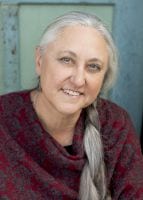 Jan Edl Stein, MFT
is the director of Holos Institute as well as a licensed MFT in private practice in San Francisco and Marin. Jan is also Adjunct Faculty in East-West Psychology at the California Institute of Integral Studies (CIIS). Jan leads workshops and retreats that interweave meditation, active imagining, shamanic journeying and earth based contemplations. She has taught/presented at Sonoma State University, Grof Transpersonal Training Program, The Bioneers Conference, Esalen Institute, IONs, and numerous private venues. All of her work draws upon a lifelong study of spiritual traditions and healing practices of earth-based cultures and a deep love of the natural world. More information may be found at www.janedl.com.
Jan Edl Stein, MFT
is the director of Holos Institute as well as a licensed MFT in private practice in San Francisco and Marin. Jan is also Adjunct Faculty in East-West Psychology at the California Institute of Integral Studies (CIIS). Jan leads workshops and retreats that interweave meditation, active imagining, shamanic journeying and earth based contemplations. She has taught/presented at Sonoma State University, Grof Transpersonal Training Program, The Bioneers Conference, Esalen Institute, IONs, and numerous private venues. All of her work draws upon a lifelong study of spiritual traditions and healing practices of earth-based cultures and a deep love of the natural world. More information may be found at www.janedl.com.
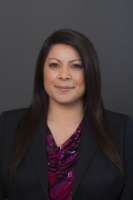 Melissa Elgin was elected as Tribal Secretary of the Graton Racheria in January 2015 after serving a six-month appointment by the Tribal Council to fill a vacant seat through December 2014. She attended the Santa Rosa Junior College where she received her Associate Degree with high honors in 2010. She has been employed by the Tribe since March of 2013. Prior to working for the Tribe, she had worked at Santa Rosa Memorial Hospital as an Emergency Room Admissions Representative for over 12 years.
Melissa Elgin was elected as Tribal Secretary of the Graton Racheria in January 2015 after serving a six-month appointment by the Tribal Council to fill a vacant seat through December 2014. She attended the Santa Rosa Junior College where she received her Associate Degree with high honors in 2010. She has been employed by the Tribe since March of 2013. Prior to working for the Tribe, she had worked at Santa Rosa Memorial Hospital as an Emergency Room Admissions Representative for over 12 years.
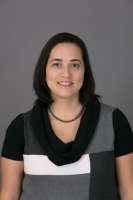
Lorelle Ross has served five elected terms as a member of the Graton Racheria Tribal Council to further her commitment to building a healthy tribal community that values cultural and social development, health, education, and economic fortitude. Beginning when she was just nineteen, she has served as a Council Member, Treasurer, and currently is serving her second term as Vice-Chair.
Lorelle’s grandfather was one of Graton Rancheria’s original distributees. After the Federated Indians of Graton Rancheria was illegally terminated in the late 1950’s and early 1960’s, her Grandfather maintained ownership of one acre on the original Rancheria. The one-acre parcel is currently owned and held in fee simple by Lorelle’s mother Gloria Armstrong, who has lived on the land for over fifty years. Lorelle was also raised on this parcel and currently lives with her mother in the original wood frame house that was first constructed on the Rancheria approximately seventy years ago.
The Graton Rancheria community is a federation of Coast Miwok and Southern Pomo groups recognized as a tribe by the US Congress. The Miwok of west Marin County have, through the years, been referred to as Marshall Indians, Marin Miwok, Tomales, Tomales Bay, and Hookooeko.
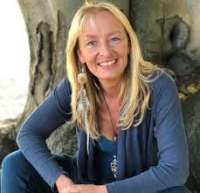 Clare Dubois is the founder of TreeSisters.org, a women’s reforestation and culture-change organization dedicated to humanity’s emergence as a “restorer species.” For 22 years she has been facilitating body-based, experiential sessions designed to help participants shift consciousness and experience their interconnectedness with nature, the root of balanced leadership and action., a women’s reforestation and culture-change organization dedicated to humanity’s emergence as a “restorer species.” For 22 years she has been facilitating body-based, experiential sessions designed to help participants shift consciousness and experience their interconnectedness with nature, the root of balanced leadership and action.
Clare Dubois is the founder of TreeSisters.org, a women’s reforestation and culture-change organization dedicated to humanity’s emergence as a “restorer species.” For 22 years she has been facilitating body-based, experiential sessions designed to help participants shift consciousness and experience their interconnectedness with nature, the root of balanced leadership and action., a women’s reforestation and culture-change organization dedicated to humanity’s emergence as a “restorer species.” For 22 years she has been facilitating body-based, experiential sessions designed to help participants shift consciousness and experience their interconnectedness with nature, the root of balanced leadership and action.
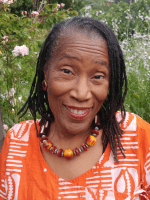 Mutima Imani, MA is a Social Justice Visionary, Master Trainer and Facilitator working to Heal the Heart of Humanity by providing 21st Century Tools for Personal/Professional Development and Transformation. Imani is a Global Diversity Specialist who understands and inspires people to think locally while planning globally. Highly skilled at bringing diverse groups together to resolve conflicts, Imani works with people conducting Civic Leadership Training and Restorative Justice Circles. Imani has a Master’s Degree in Public Administration with an emphasis in Phenomenology; Imani is passionate about how all things work together and what humans can learn from the natural world.
Mutima Imani, MA is a Social Justice Visionary, Master Trainer and Facilitator working to Heal the Heart of Humanity by providing 21st Century Tools for Personal/Professional Development and Transformation. Imani is a Global Diversity Specialist who understands and inspires people to think locally while planning globally. Highly skilled at bringing diverse groups together to resolve conflicts, Imani works with people conducting Civic Leadership Training and Restorative Justice Circles. Imani has a Master’s Degree in Public Administration with an emphasis in Phenomenology; Imani is passionate about how all things work together and what humans can learn from the natural world.
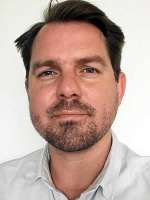 Garret Barnwell PhD is a clinical psychologist practicing in ecopsychology in South Africa. For almost a decade he has worked for the humanitarian sector in Somaliland, Lebanon, Turkey and in South Africa focusing on issues such as detention, migration and violence. His research focuses on the psychological impacts of environmental degradation who are confronted by the extractive industry.
Garret Barnwell PhD is a clinical psychologist practicing in ecopsychology in South Africa. For almost a decade he has worked for the humanitarian sector in Somaliland, Lebanon, Turkey and in South Africa focusing on issues such as detention, migration and violence. His research focuses on the psychological impacts of environmental degradation who are confronted by the extractive industry.
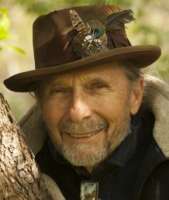 James Stark, M.A., F.E.S., is the co-director of the Regenerative Design Institute (RDI). He co-founded and currently co-directs the Ecology of Leadership program, preparing community leaders for the “Great Turning” of our era and the Art of Vitality program – – creating pathways to vitality, with Anna O’Malley MD.
James Stark, M.A., F.E.S., is the co-director of the Regenerative Design Institute (RDI). He co-founded and currently co-directs the Ecology of Leadership program, preparing community leaders for the “Great Turning” of our era and the Art of Vitality program – – creating pathways to vitality, with Anna O’Malley MD.
James has committed his life to exploring how we — ourselves, our communities, and our species — might move into harmony with our true nature and re-ignite a deep connection with the rest of the natural world – we are nature. A large part of that work is focused on cultivating vitality in all areas of our lives -physical, mental, emotional and spiritual.
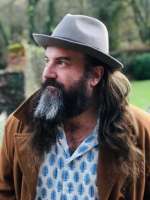
Martin Shaw, PhD is author of the award-winning Mythteller trilogy (A Branch From The Lightning Tree, Snowy Tower, Scatterlings), he founded the Oral Tradition and Mythic Life courses at Stanford University, whilst being director of the Westcountry School of Myth in the UK. He has introduced thousands of people to mythology and how it penetrates modern life. For twenty years Shaw has been a wilderness rites of passage guide, working with at-risk youth, the sick, returning veterans and many women and men seeking a deeper life.
His translations of Gaelic poetry and folklore (with Tony Hoagland) have been published in Orion Magazine, Poetry International, Kenyon Review, Poetry Magazine and the Mississippi Review. Fresh for 2019 will be his new book, The Night Wages, and his Lorca translations, Courting the Dawn (with Stephan Harding). His essay and conversation with Ai Weiwei on myth and migration will be published by the Marciano Arts foundation in early 2019.
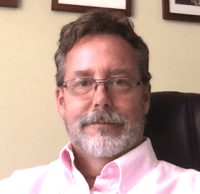 Craig Chalquist, PhD is a board member of Holos Institute, Associate Provost of Pacifica Graduate Institute, and author of several books at the intersection of psyche, story, nature, place, and imagination. Visit his website at Worldrede.com.
Craig Chalquist, PhD is a board member of Holos Institute, Associate Provost of Pacifica Graduate Institute, and author of several books at the intersection of psyche, story, nature, place, and imagination. Visit his website at Worldrede.com.
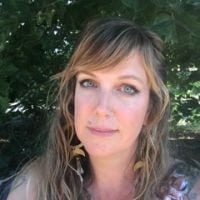 Mary Good, MFT is a holistic counselor, ecotherapist and certified California Naturalist. In her private psychotherapy practice, Mary helps her clients to reconnect with their inherent wholeness through mindfulness, somatic exercises, here-and-now awareness and compassionate insight. She loves to work with clients in outdoor sessions, with nature as her co-therapist. Mary seeks to inspire others to connect with Place, by getting to know their bioregion through natural and indigenous history, folklore and direct contact with the land and its inhabitants. When not in session, she enjoys writing, gardening, wildcrafting and tending her flock of 15 chickens. She lives in Sebastopol, CA with her husband and daughter. http://marygood.squarespace.com/
Mary Good, MFT is a holistic counselor, ecotherapist and certified California Naturalist. In her private psychotherapy practice, Mary helps her clients to reconnect with their inherent wholeness through mindfulness, somatic exercises, here-and-now awareness and compassionate insight. She loves to work with clients in outdoor sessions, with nature as her co-therapist. Mary seeks to inspire others to connect with Place, by getting to know their bioregion through natural and indigenous history, folklore and direct contact with the land and its inhabitants. When not in session, she enjoys writing, gardening, wildcrafting and tending her flock of 15 chickens. She lives in Sebastopol, CA with her husband and daughter. http://marygood.squarespace.com/
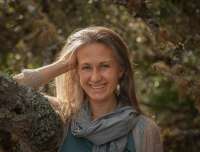 Anna O’Malley, MD, is an Integrative Family and Community Medicine physician, and a believer in the Medicine of being in relationship with the Earth.
Anna O’Malley, MD, is an Integrative Family and Community Medicine physician, and a believer in the Medicine of being in relationship with the Earth.
Anna has long nurtured a vision of having a healing center grounded in ecological principals. Where healers move beyond “doing no harm” and work for healing on every level, including planetary. Where reverent reciprocity guides us toward healing and wholeness.
This vision led to her founding Natura Institute for Ecology and Medicine in the Commonweal Garden. Through Natura’s programs in permaculture, herbal medicine, and transformative healing, Anna is exploring a deeper meaning of Medicine and the role of healer in society.
Anna holds an inclusive vision for the transformation of medicine, informed by her work with the underserved and incarcerated. Her primary care practice allows her the profound privilege of being a healer in a village, the opportunity to cultivate community as Medicine, and the gift of witnessing the cycles of life.
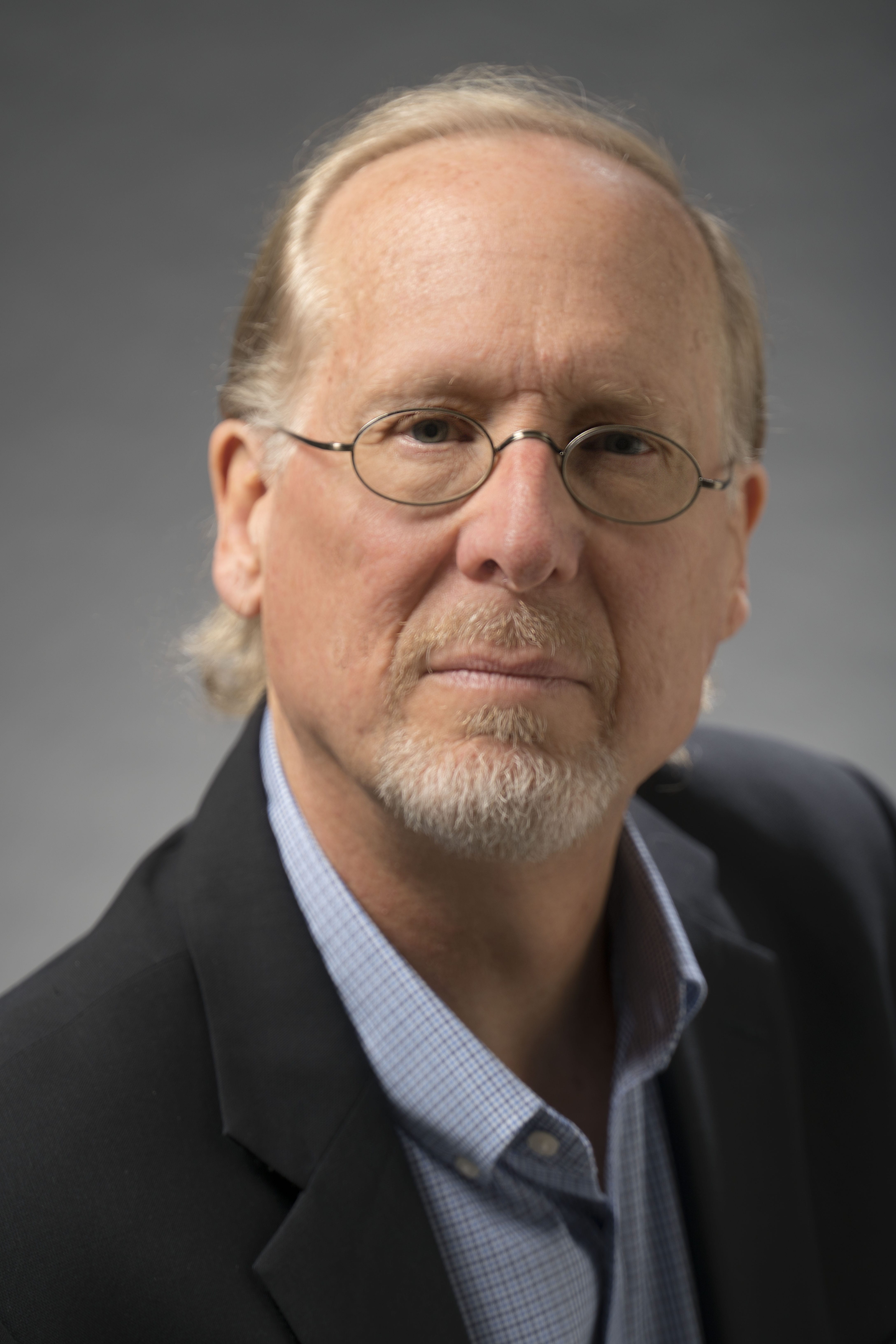 Dr. Josef Ruzek retired as Director of the VA National Center for PTSD Dissemination and Training Division in April 2018. Joe is an Adjunct Professor at Stanford University Department of Psychiatry and Behavioral Sciences and Co-Director of the Center for m2Health at Palo Alto University. He has edited several volumes on treatment of PTSD, including Cognitive-Behavioral Therapies for Traumaand Caring for Veterans with Deployment-Related Stress Disorders: Iraq, Afghanistan, and Beyondand is a past member of the Board of Directors of the International Society for Traumatic Stress Studies. Joe specializes in early intervention to prevent the development of PTSD, disaster mental health, dissemination of evidence-based treatments for PTSD, and development and evaluation of Internet- (e.g., My Sonoma Strong) and smartphone-based interventions (e.g., PTSD Coach) for trauma survivors.
Dr. Josef Ruzek retired as Director of the VA National Center for PTSD Dissemination and Training Division in April 2018. Joe is an Adjunct Professor at Stanford University Department of Psychiatry and Behavioral Sciences and Co-Director of the Center for m2Health at Palo Alto University. He has edited several volumes on treatment of PTSD, including Cognitive-Behavioral Therapies for Traumaand Caring for Veterans with Deployment-Related Stress Disorders: Iraq, Afghanistan, and Beyondand is a past member of the Board of Directors of the International Society for Traumatic Stress Studies. Joe specializes in early intervention to prevent the development of PTSD, disaster mental health, dissemination of evidence-based treatments for PTSD, and development and evaluation of Internet- (e.g., My Sonoma Strong) and smartphone-based interventions (e.g., PTSD Coach) for trauma survivors.
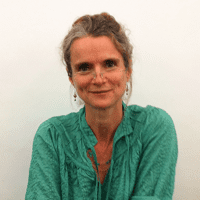
Rachael Vaughan, MFT is a licensed psychotherapist with a bilingual practice in San Francisco and Marin county. She holds an MA in Depth Psychology from Pacifica Graduate Institute, California, as well as an MA in Linguistics from the University of Edinburgh, Scotland. She has studied at the C.G. Jung Institute of San Francisco. Born in Asia and raised primarily in Europe, Rachael has a lifelong, passionate interest in issues of culture, identity and inclusion as well as a deep love of the world. Her teaching is informed by multiple cultural perspectives, as well as post-colonial and feminist theory, and she writes the Ethnopsychology Blog. Rachael also holds a Permaculture Design Certificate and has an active interest in eco-psychology, grounded in gardening, nature art and rural life with a large dog. She is a member of the Shambhala lineage of Tibetan Buddhism.
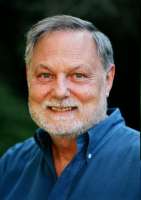
Duane Elgin is an internationally recognized speaker, author, and social visionary who looks beneath the surface turbulence of our times to explore the deeper trends that are transforming our world. In 2006, Duane received the International Goi Peace Award in Japan in recognition of his contribution to a global “vision, consciousness, and lifestyle” that fosters a “more sustainable and spiritual culture.” For the past three years, he has been the executive director of a project that has brought together more than a dozen “Great Transition Stories” that offer new cultural narratives for our collective imagination and that can serve help guide us toward a sustainable and meaningful future.
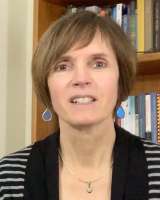 Coleen LeDrew Elgin is the co-director with Duane Elgin of the Great Transition Project and is directing a film project that explores the psychological and spiritual implications of existential risks, particularly from climate disruption. For more than 12 years her documentary work focused on pioneers of consciousness and spiritual path. She directed Science and Sacraments: Psychedelic Research and Mystical Experiences (2012). Coleen has an MA from the California Institute of Integral Studies in Anthropology and Social Change with a focus on learning communities. A long-time meditation practitioner, she has immersed herself in a number of Wisdom traditions including Vajrayana Buddhism.
Coleen LeDrew Elgin is the co-director with Duane Elgin of the Great Transition Project and is directing a film project that explores the psychological and spiritual implications of existential risks, particularly from climate disruption. For more than 12 years her documentary work focused on pioneers of consciousness and spiritual path. She directed Science and Sacraments: Psychedelic Research and Mystical Experiences (2012). Coleen has an MA from the California Institute of Integral Studies in Anthropology and Social Change with a focus on learning communities. A long-time meditation practitioner, she has immersed herself in a number of Wisdom traditions including Vajrayana Buddhism.
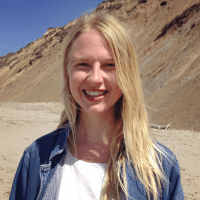 Sarah Scheld works with the MAPS (Multidisciplinary Association for Psychedelic Studies) Public Benefit Corporation to coordinate and develop curriculum for their MDMA Therapy Training Program, which educates health professionals to provide MDMA-assisted psychotherapy for PTSD in approved settings, including Phase 3 clinical research trials. Her work also focuses on ethics, accessibility, and social justice initiatives in psychedelic science. As a graduate of the California Institute of Integral Studies and an ongoing student of Hakomi and Somatic Experiencing, she continues to train in experiential psychotherapy, trauma resolution, and working with expanded states of consciousness. Sarah is passionate about the role of trauma awareness and the skillful use of psychedelic medicines in challenging oppression and helping to heal people, communities, and environments.
Sarah Scheld works with the MAPS (Multidisciplinary Association for Psychedelic Studies) Public Benefit Corporation to coordinate and develop curriculum for their MDMA Therapy Training Program, which educates health professionals to provide MDMA-assisted psychotherapy for PTSD in approved settings, including Phase 3 clinical research trials. Her work also focuses on ethics, accessibility, and social justice initiatives in psychedelic science. As a graduate of the California Institute of Integral Studies and an ongoing student of Hakomi and Somatic Experiencing, she continues to train in experiential psychotherapy, trauma resolution, and working with expanded states of consciousness. Sarah is passionate about the role of trauma awareness and the skillful use of psychedelic medicines in challenging oppression and helping to heal people, communities, and environments.
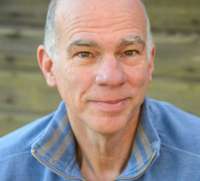
Jamie McHugh, RSMT is a Registered Somatic Movement Therapist, somatic coach, and visual artist living on the Mendocino coast. The creator of Somatic Expression® – Body Wisdom for Modern Minds, Jamie has guided somatic-expressive encounters with the natural world for the past 25 years in the United States and Europe. www.somaticexpression.com
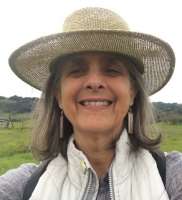 Susan Karle, MFT & Certified Forest Therapy Guide. In her psychotherapy practice, Susan combines her expertise in treating anxiety, depression, trauma and grief with her passion for partnering with Nature. Having valued a relationship with Nature her whole life, she is thrilled to extend Healing practices to her clients that include connecting to the Wild. For the past 5 years Susan’s been guiding individuals and groups in Shinrin Yoku/Sensory Immersion Walks. Most recently, she has led “Honoring Loss and Resilience” Walks for Fire survivors. Susan feels privileged to help this vulnerable population to regain a grounded, embodied sense of safety and trust.
Susan Karle, MFT & Certified Forest Therapy Guide. In her psychotherapy practice, Susan combines her expertise in treating anxiety, depression, trauma and grief with her passion for partnering with Nature. Having valued a relationship with Nature her whole life, she is thrilled to extend Healing practices to her clients that include connecting to the Wild. For the past 5 years Susan’s been guiding individuals and groups in Shinrin Yoku/Sensory Immersion Walks. Most recently, she has led “Honoring Loss and Resilience” Walks for Fire survivors. Susan feels privileged to help this vulnerable population to regain a grounded, embodied sense of safety and trust.
BREAKOUT WORKSHOP LEADERS
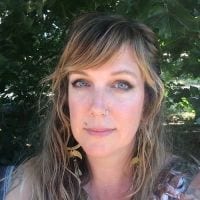 Mary Good, MFT In her private practice as a holistic counselor and ecotherapist, Mary helps her clients to reconnect with their inherent wholeness through mindfulness, somatic exercises, here-and-now awareness and compassionate insight. She loves to work with clients in outdoor sessions, with nature as her co-therapist. Mary seeks to inspire others to connect with Place, by getting to know their bioregion through natural and indigenous history, folklore and direct contact with the land and its inhabitants. When not in session, she enjoys writing, gardening, wildcrafting and tending her flock of 8 chickens. She lives in Sebastopol, CA with her husband and daughter.
Mary Good, MFT In her private practice as a holistic counselor and ecotherapist, Mary helps her clients to reconnect with their inherent wholeness through mindfulness, somatic exercises, here-and-now awareness and compassionate insight. She loves to work with clients in outdoor sessions, with nature as her co-therapist. Mary seeks to inspire others to connect with Place, by getting to know their bioregion through natural and indigenous history, folklore and direct contact with the land and its inhabitants. When not in session, she enjoys writing, gardening, wildcrafting and tending her flock of 8 chickens. She lives in Sebastopol, CA with her husband and daughter.
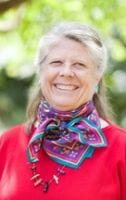 Constance Washburn, MA is a facilitator, educator, community organizer and program designer she brings together diverse groups to experience the depth of their interconnection to the web of life, to generate vision and facilitate collaborative efforts to meet the needs of participants and Earth. She is currently co-leader and facilitator of the Spiral Journey- a Facilitator Development Program in the Work That Reconnects and on the core Weavers Team of the Work That Reconnects Network. She served as Education Director at the Marin Agricultural Land Trust (MALT) and Marin Organic for almost 20 years and co-founded and directed, the Marin Agriculture and Education Alliance which brought together countywide agricultural and educational organizations. She has a MA in Education and Theater, certificates in the Ecology of Leadership, Permaculture Design and Transforming Business, Society, and Self from U.Lab MITx. She is a mindfulness/ meditation instructor in the Vajrayana Tradition and a long time yoga practitioner and have completed 3 yoga teacher trainings.
Constance Washburn, MA is a facilitator, educator, community organizer and program designer she brings together diverse groups to experience the depth of their interconnection to the web of life, to generate vision and facilitate collaborative efforts to meet the needs of participants and Earth. She is currently co-leader and facilitator of the Spiral Journey- a Facilitator Development Program in the Work That Reconnects and on the core Weavers Team of the Work That Reconnects Network. She served as Education Director at the Marin Agricultural Land Trust (MALT) and Marin Organic for almost 20 years and co-founded and directed, the Marin Agriculture and Education Alliance which brought together countywide agricultural and educational organizations. She has a MA in Education and Theater, certificates in the Ecology of Leadership, Permaculture Design and Transforming Business, Society, and Self from U.Lab MITx. She is a mindfulness/ meditation instructor in the Vajrayana Tradition and a long time yoga practitioner and have completed 3 yoga teacher trainings.
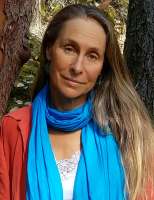 Renée G. Soule, PhD has been developing and teaching ecopsychology for over 30 years. Her path as an ecopsychologist began at Sonoma State University where studying Wilderness Psychology required prolonged stints in wilderness settings. She has been teaching Nonviolent Communication in San Quentin for over 12 years and also works with recovering addicts. A primary focus of her work engages environmental crises as an initiation presaging and promoting a new level of maturity commensurate with the challenges we face. What do these tragic crises invite us to become?
Renée G. Soule, PhD has been developing and teaching ecopsychology for over 30 years. Her path as an ecopsychologist began at Sonoma State University where studying Wilderness Psychology required prolonged stints in wilderness settings. She has been teaching Nonviolent Communication in San Quentin for over 12 years and also works with recovering addicts. A primary focus of her work engages environmental crises as an initiation presaging and promoting a new level of maturity commensurate with the challenges we face. What do these tragic crises invite us to become?
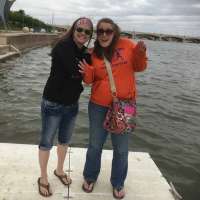 Aimee Lewis-Reau, CoFounder & Creative Director Born and raised in southeast Michigan, Aimee is a certified Scholè Yoga Instructor and RYT 200. She DJs on the side and takes delight in making crowds dance, because Alice Walker said it best: “Hard times require furious dancing.” Aimee received her Bachelor’s degree in English from Central Michigan University before obtaining her MFA in Creative Nonfiction from Georgia College & State University.
Aimee Lewis-Reau, CoFounder & Creative Director Born and raised in southeast Michigan, Aimee is a certified Scholè Yoga Instructor and RYT 200. She DJs on the side and takes delight in making crowds dance, because Alice Walker said it best: “Hard times require furious dancing.” Aimee received her Bachelor’s degree in English from Central Michigan University before obtaining her MFA in Creative Nonfiction from Georgia College & State University.
LaUra Schmidt, CoFounder & Director Of Operations Hailing from mid-Michigan, LaUra is a graduate of Central Michigan University with a BS in Environmental Studies, Biology, and Religious Studies. She earned her MS in Environmental Humanities from the University of Utah. She’s a Climate Reality Leadership Corps member and finds inspiration in natural landscapes and honest, open-hearted dialogue.
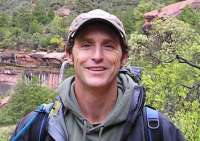
David Talamo, MFT is founder of Wilderness Reflections, a Certified Hakomi Therapist and has over 40 years experience as a wilderness guide. Dave is a pioneer in the field of ecotherapy and trains students locally and internationally in Wilderness Reflections’ unique blend of mindful, body-centered ecotherapy.
 Cyndera Quackenbush, MA is a storyteller, educator and reflection card reader originally from Joshua Tree, California. She is the creator of the Story Through Stone Reflection Deck and Reflection Card Reading Method and practices in Pacifica, Bay Area. A Master’s Degree in Counseling Psychology from Pacifica Graduate Institute (For the Sake of Tending Soul in and of the World) has shaped her life’s work assisting individuals uncover their deep underlying wisdom through the power of play, story and reflection using natural imagery. She has presented most recently for the British Association of Art Therapists in Bath, England and has also offered workshops at the International Association of the Study of Dreams, The Study of Myth Symposium, and the Dream Institute of Northern California. Learn more at storythroughstone.org
Cyndera Quackenbush, MA is a storyteller, educator and reflection card reader originally from Joshua Tree, California. She is the creator of the Story Through Stone Reflection Deck and Reflection Card Reading Method and practices in Pacifica, Bay Area. A Master’s Degree in Counseling Psychology from Pacifica Graduate Institute (For the Sake of Tending Soul in and of the World) has shaped her life’s work assisting individuals uncover their deep underlying wisdom through the power of play, story and reflection using natural imagery. She has presented most recently for the British Association of Art Therapists in Bath, England and has also offered workshops at the International Association of the Study of Dreams, The Study of Myth Symposium, and the Dream Institute of Northern California. Learn more at storythroughstone.org
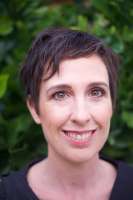 Kathren Murrell Stevenson, PhD specializes in reconnecting humans to the Living Whole, where we experience ourselves as individuals connected through relationship and belonging in the web of life. As a practiced guide for personal and planetary transformation, her approach is grounded in her understanding of the principles of ecology, personal studies with indigenous wisdom teachers, twenty years of study and practice in embodied awareness modalities, and deep immersion in nature. www.wisdomecology.com. As an adjunct instructor at CIIS, Kathren has enjoyed teaching “Plants and People: Exploring Nature through Relationship” and “The Ecology and Poetry of Trees”. A certified yoga teacher and bodyworker, she taught weekly yoga classes for over a decade and led workshops and retreats in Yoga, Arts, and Ecology. Kathren holds a Ph.D. in Plant Ecology from U.C. Davis and a B.A. in Biogeography from the University of Texas at Austin.
Kathren Murrell Stevenson, PhD specializes in reconnecting humans to the Living Whole, where we experience ourselves as individuals connected through relationship and belonging in the web of life. As a practiced guide for personal and planetary transformation, her approach is grounded in her understanding of the principles of ecology, personal studies with indigenous wisdom teachers, twenty years of study and practice in embodied awareness modalities, and deep immersion in nature. www.wisdomecology.com. As an adjunct instructor at CIIS, Kathren has enjoyed teaching “Plants and People: Exploring Nature through Relationship” and “The Ecology and Poetry of Trees”. A certified yoga teacher and bodyworker, she taught weekly yoga classes for over a decade and led workshops and retreats in Yoga, Arts, and Ecology. Kathren holds a Ph.D. in Plant Ecology from U.C. Davis and a B.A. in Biogeography from the University of Texas at Austin.
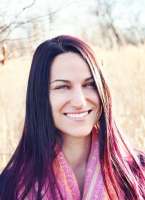
Niki Sylva is passionate about empowerment through information-resourcing and harm reduction for individuals, communities, and the environment. She facilitates peer integration circles in her community and coordinates educational programming for Botanical Dimensions Ethnobotany Library in Occidental, California, occupied ancestral land of indigenous Coast Miwok and Pomo peoples.
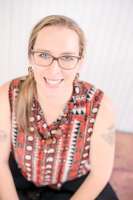 Jennifer Owens, LCSW is the Co-Founder and Wellness Director of Bridge Counseling and Wellness, an integrative mental health and wellness center in Louisville, KY. She is also the founder of the Shinrin Yoku Society of Kentuckiana and leads guided forest bathing experiences across the state, partnering with local parks, state nature preserves and non-profit organizations. Owens specializes in an outdoor-mindfulness based, somatic approach to individual therapy. Often crediting her adventures in the backcountry to her recovery from severe panic and anxiety, Owens has a lifetime of experience in the wilderness including kayaking, backpacking, hiking and solo wandering. Passionate about reconnecting humans with their inner and outer wild nature for the increased wellbeing of ourselves and our planet, she facilitates retreats, nature-connection groups and workshops on topics including Forest Bathing and Ecotherapy. Jennifer is a Kentucky Master Naturalist and has studied with the Earthbody Institute, Animus Valley Institute and is currently a student at the Wildcraft Forest School on her way to becoming a certified Yasaei Shinrin Yoku Guide. She is also an adjunct faculty at the University of Louisville teaching Human Behavior in the Social Environment.
Jennifer Owens, LCSW is the Co-Founder and Wellness Director of Bridge Counseling and Wellness, an integrative mental health and wellness center in Louisville, KY. She is also the founder of the Shinrin Yoku Society of Kentuckiana and leads guided forest bathing experiences across the state, partnering with local parks, state nature preserves and non-profit organizations. Owens specializes in an outdoor-mindfulness based, somatic approach to individual therapy. Often crediting her adventures in the backcountry to her recovery from severe panic and anxiety, Owens has a lifetime of experience in the wilderness including kayaking, backpacking, hiking and solo wandering. Passionate about reconnecting humans with their inner and outer wild nature for the increased wellbeing of ourselves and our planet, she facilitates retreats, nature-connection groups and workshops on topics including Forest Bathing and Ecotherapy. Jennifer is a Kentucky Master Naturalist and has studied with the Earthbody Institute, Animus Valley Institute and is currently a student at the Wildcraft Forest School on her way to becoming a certified Yasaei Shinrin Yoku Guide. She is also an adjunct faculty at the University of Louisville teaching Human Behavior in the Social Environment.TO REGISTER FOR THE CONFERENCE PLEASE CLICK HERE
CONFERENCE FEES:
- Full Conference Weekend and partial conference registration now available
- Late fees for registrations on or after March 28
- Tickets for only the Saturday evening program with Martin Shaw will go on sale March 25 (as available)
FULL WEEKEND (includes lunch Sat and Sun, Dinner Saturday and evening program with Martin Shaw):
$388 (regular) $408 (late – after March 28, 2019)
SATURDAY DAY PROGRAM ONLY (includes Sat lunch – no dinner or evening program)
or, SUNDAY DAY PROGRAM ONLY (includes lunch)
$184 (regular) $195 (late – after March 28, 2019)
SATURDAY FULL PROGRAM (includes lunch, dinner and evening program with Martin Shaw)
$229 (regular) $240 (late – after March 28, 2019)
SATURDAY EVENING ONLY WITH MARTIN SHAW: SOLD OUT
DISCOUNTS: (For full day or weekend conference registrations)
Seniors (over 65), use PROMO code SENIOR for a 15% discount
Interns and full-time Students, use PROMO code STU_INTERN for a 15% discount
Need more help making this affordable? Contact us for work/trade partial discounts. We have a limited number of work trade positions and the amount of discount will lessen as the conference date gets closer. Priority discounts go to students, interns and people just starting careers.
We promise to work with you to make this affordable as best as possible!
EXTRA ADD-ONs:
CEU certificates:
- $12 for BBSE licensees per each day
LODGING AT EARTHRISE IS CURRENTLY FULL
We suggest looking for lodging nearby in Novato or Petaluma
(There are also many lodging options off campus in or around the Petaluma/Novato area that may be more reasonable)
CEU certificate: ONE PER DAY
~~~~~~~~~~~~~~~~~~~~~~~~~~~~~~~~~~~~~~~~~~~~~~~~~~
CANCELLATION POLICY
Refunds minus a $50 handling fee is possible for any cancellation received via email (events@holosinstitute.net) no later than March 15, 2019
Refunds minus a $150 fee is possible for any cancellation received via email after March 15, 2018 but BEFORE March 25
ABSOLUTELY No refunds for cancellations received after March 25, 2018.
THERE ARE NO EXCEPTIONS TO THIS POLICY
If you can… Please, Please consider making a donation to our scholarship fund which we will use to support scholarships to people who would love to attend but may not be able to afford the full fee. Even a donation of $20 – $50 will be much appreciated by a young steward of the land.
AND, any donation is 100% tax deductible.
This conference takes place on the campus of the Earthrise Retreat Center which is part of the Institute of Noetic Sciences.
101 San Antonio Road
Petaluma, CA 94952 USA
It is located just 30 miles north of San Francisco on a campus of 195 acres of rolling hills at the border of Marin and Sonoma Counties.
CLICK HERE FOR MORE INFORMATION ON PLANNING YOUR VISIT
The pre-conference workshop on Friday takes place on the land and in the dining area.
The main conference takes place in the West Room Conference hall.
We encourage you to come with sturdy shoes for walking outdoors and dressed in layers.
Both Saturday and Sunday attendance includes a hearty lunch at the center.
Dinner is also available on Friday evening and on Saturday between the day program and the evening session.
Lodging onsite is available for Friday and Saturday nights (Sunday as well if you let us know well in advance).
If you are staying overnight on campus, you may wish to bring a bathing suit to enjoy the large hot tub.
DRIVING DIRECTIONS MAY BE FOUND HERE
If you are arriving by public transportation and need help getting from a drop-off point to campus, let us know via email and we will do our best to coordinate with you and help you with this.
If you require handicapped parking please let us know. There are a very limited number of these available which we can reserve.
Continuing Education Credits
The conference meets the qualifications for 7 hours of continuing education credit each day for MFTs, LCSWs, LPCCs and LEPs as required by the California Board of Behavioral Sciences. Holos Institute is approved by the California Association of Marriage and Family Therapists (CEPA #90905) to sponsor continuing education for the licenses listed above. Holos Institute maintains responsibility for its programs and content.
RNs may be able to get CEU credit honored by their licensing board (please check your board).
The cost of each day’s CEU certificate is $12 for BBSE licensees
At the end of this conference, participants will be able to:
- Explain the fundamental position of ecopsychology
- Recognize how family history sets patterns of implicit bias.
- Describe cross-cultural understanding of practicing Ecopsychology in sacred places that have experienced political trauma
- Name at least one way in which mythic stories provide a powerful ethical lesson
- List 5 core principles of individual counseling to assist those affected by disasters related to climate change.
- List 3 ways in which key psychological defenses block action on climate change
- List at least 3 ways ecological grief and trauma impacts clients
- And, according to the breakout sessions chosen, will be able to:
~Apply a technique that increases trust and immediacy of contact with the natural world
~Lead a sensory-imaginative engagement with nature
~Describe an application of ecotherapy specif to addressing trauma
